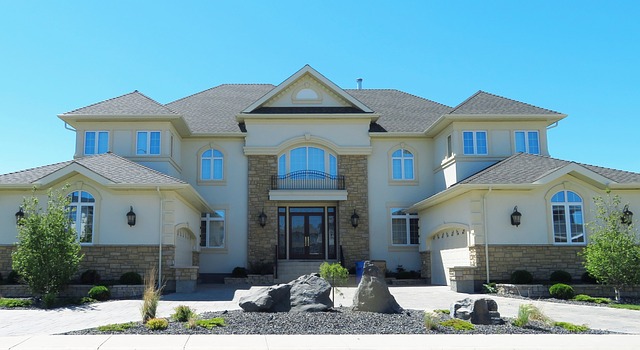The integration of Electronic Health Cards (EC) at Mass Rapid Transit (MRT) stations in urban areas offers improved healthcare access and addresses disparities, leading to better public health. In 2023, economic factors impact EC near MRT costs, prompting businesses to adjust pricing strategies like promotions during slower periods for sustainability. Shifting towards value-based pricing models, retailers focus on customer perceptions using data analytics for dynamic pricing tailored to individual needs. Enhanced consumer price awareness from e-commerce platforms pushes retailers to adopt competitive rates and agile strategies to attract customers, fostering trust in discussions about prices. The future of EC near MRT pricing will be driven by the continuous interaction between informed consumers and adaptable retailers.
“Unveiling the 2023 EC pricing trends, this article navigates the dynamic landscape of healthcare costs. With a global perspective, we explore how EC (outpatient care) near MRT (mass rapid transit) hubs is revolutionizing access to affordable healthcare. Inflation’s impact and shifting economic landscapes shape these trends.
Delving into value-based pricing models, we analyze their potential to transform EC pricing. Furthermore, consumer awareness and negotiation power are poised to play a pivotal role in defining the future of EC pricing strategies.”
- The Shifting Landscape of EC Pricing: A Global Perspective
- EC Near MRT: Unlocking Affordable Healthcare's Potential
- Impact of Inflation and Economic Fluctuations on EC Costs
- Value-Based Pricing Models: A New Era in EC Pricing
- Consumer Awareness and Negotiation Power: Shaping the Future of EC Pricing Trends
The Shifting Landscape of EC Pricing: A Global Perspective

The global landscape of e-commerce (EC) pricing is undergoing a significant transformation, particularly as we enter 2023. With the rise of online shopping and evolving consumer behaviors, EC retailers are navigating a new set of challenges and opportunities when it comes to setting prices for their products. The concept of ‘EC Near MRT’ (Mean to Market Rate) has gained traction, reflecting a shift towards dynamic pricing strategies that align with market demand and competitive forces on a global scale.
This trend is driven by several factors. First, the pandemic accelerated the digital transformation of retail, pushing more consumers online. As a result, e-commerce platforms now have access to vast amounts of data, allowing them to understand customer preferences and local market trends better than ever before. Additionally, cross-border e-commerce is expanding, creating a more interconnected global market where prices can vary widely based on regional dynamics and logistics. Retailers are responding by adopting agile pricing models that adapt swiftly to these changes, ensuring they remain competitive in their respective markets while optimizing revenue.
EC Near MRT: Unlocking Affordable Healthcare's Potential

In urban areas, the concept of EC (Electronic Health Cards) Near MRT (Mass Rapid Transit) stations is gaining traction as a promising strategy to enhance healthcare accessibility and affordability. This innovative approach leverages the convenience of public transport hubs, where individuals from diverse backgrounds frequently gather. By establishing EC centers at or near MRT stations, communities can benefit from streamlined access to essential healthcare services. Such proximity ensures that EC users can easily book appointments, receive routine check-ups, and manage their health records efficiently.
The potential impact of EC Near MRT extends beyond convenience. It has the power to bridge healthcare disparities, particularly in underserved areas. With affordable pricing and readily available resources, this model encourages proactive healthcare management. As a result, it can lead to improved public health outcomes, early disease detection, and better overall wellness for urban populations. This trend is not just a step towards efficient healthcare delivery; it’s a move toward empowering individuals to take charge of their health in a bustling, fast-paced cityscape.
Impact of Inflation and Economic Fluctuations on EC Costs

The impact of inflation and economic fluctuations on EC (e-commerce) costs cannot be overstated in 2023. With rising global prices, businesses are facing increased operational expenses, leading to potential adjustments in their pricing strategies for EC near MRT (mass rapid transit) hubs. As the cost of goods and services rises, e-commerce platforms may need to pass on these additional costs to consumers, impacting purchasing power and demand.
Economic fluctuations also play a significant role. Recessions or economic downturns can lead to reduced consumer spending, affecting the overall sales volume for EC businesses. To mitigate these effects, companies might employ dynamic pricing strategies, offering promotions or discounts during slower periods to attract customers. This approach allows them to maintain liquidity while adapting to changing market conditions, ensuring sustainability in a volatile economic landscape.
Value-Based Pricing Models: A New Era in EC Pricing

In the evolving landscape of e-commerce (EC), the shift towards value-based pricing models is a notable trend for 2023 and beyond. This new era in EC pricing goes beyond traditional cost-plus or competitive pricing strategies. It centers on understanding customer value, recognizing that what customers perceive as fair price varies based on individual needs, preferences, and perceptions of alternatives, especially with the rise of EC near MRT (Mass Rapid Transit) hubs.
Value-based pricing models require a deep dive into consumer behavior, leveraging data analytics to segment customers and tailor prices accordingly. This approach acknowledges that customers are increasingly sophisticated, readily comparing options across various platforms, including those located strategically at EC near MRT stations. As such, retailers must offer competitive, transparent pricing that resonates with diverse customer profiles to remain relevant in this dynamic market.
Consumer Awareness and Negotiation Power: Shaping the Future of EC Pricing Trends

With the rise of e-commerce (EC) platforms and the convenience of online shopping, consumers have become more aware of pricing dynamics. This heightened awareness is shifting the power balance in negotiations between buyers and sellers, especially for EC near MRT locations. Easy access to information allows shoppers to quickly compare prices, not just within the same platform but across different e-tailers, giving them a significant advantage. As a result, retailers must be more agile and responsive to price changes, offering competitive rates to attract and retain customers.
This new era of consumer awareness is driving a trend towards more transparent pricing strategies. Sellers are increasingly providing detailed product information, including manufacturing costs, shipping fees, and profit margins, giving shoppers a clearer picture. This transparency fosters trust and encourages consumers to engage in discussions about prices, especially for larger purchases or when negotiating bulk orders. The future of EC pricing trends will be defined by this dynamic interplay between consumer power and retailer adaptability.
